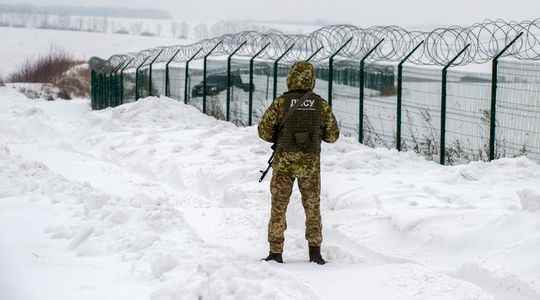BENIGN
Unprecedented jihadist attacks
Never had terrorism killed so many people in Benin. Nine dead and twelve injured, victims, on February 8 and 10, of explosive devices in the W natural park (in the north). Covered with forests, the place, located on the border with Burkina Faso and Niger, is an ideal refuge for jihadists. “And they are encouraged […] by the absence of the three States”, judge The country.
While the threat extends to the Gulf of Guinea, the Burkinabe daily believes that the leaders of these countries “did not take seriously the alerts issued by the intelligence services of France”.
UKRAINE
Washington evacuates its nationals
Like the United Kingdom, Germany and Canada, the United States called on February 11 for its citizens to leave Ukraine because of the risk of Russian invasion. An exaggerated “alarmism”, according to the Ukrainian president. Lately, the White House has shared a lot of intelligence on Russian troop movements.
It’s “Biden’s megaphone strategy”, according to washington post, which aims to nip any surprise attacks in the bud. Other analysts claim that “the administration is erring on the side of caution” to avoid a disaster evacuation… like last summer in Afghanistan.
INDONESIA
Jakarta builds up its army
Indonesia signed on 10 February the purchase of 42 French Rafale aircraft for 7.1 billion euros. And the country is also eyeing 36 American F-15 (Boeing) fighter planes. This order, if it materializes, will complete the new air force of the first economy in Southeast Asia, which is modernizing its defense against Beijing’s territorial claims in the South China Sea. For the Jakarta Postit confirms the “growing arms race in the Indo-Pacific region, following the surprise announcement last year of a security partnership between the United States, Australia and the United Kingdom”.
UNITED STATES
Blinken in search of levers against Pyongyang
How to bring North Korea back to the negotiating table? This is the question on which, on February 12, the head of American diplomacy, Antony Blinken, and his South Korean and Japanese counterparts, gathered in Hawaii. This meeting comes in full “provocation phase” of Pyongyang, according to Blinken, back from a tour in the Pacific. North Korea launched seven missiles in January, a record in a month remind him Korea Times, in Seoul. Besides the condemnations, the three ministers sought to display a united front and pledged to advance trilateral cooperation.
ITALY
Putin’s gas diplomacy
It’s a phone call between Mario Draghi and Vladimir Poutine, on February 1, who puzzled the Corriere della Sera. “The two must have said something important to each other”, says the newspaper in its edition of the 8th. Because the same day, the volumes of Russian gas to Italy doubled, after weeks of drastic reduction in Europe, including only Germany, linked to Russia by the Nord Stream 1 gas pipeline, was spared. At a time when the West is threatening – in the event of a Russian invasion of Ukraine – to block the commissioning of its big brother, Nord Stream 2, the Kremlin is apparently trying to seduce Italy to better dissuade her…
LIBYA
Back to square one
“Of all the scenarios that were considered, this is perhaps one of the worst” is sorry The Orient by Day the day after the appointment in Tobruk (eastern Libya) of a second Prime Minister, Fathi Bachaga, rival of the current chief executive, Abdel Hamid Dbeibah, based in Tripoli. His government has yet to be approved by the Eastern Parliament. “The result could be a return to institutional schism,” predicts researcher Wolfram Lacher, quoted by the Lebanese daily. Worse, this new episode runs the risk of a new war and destroys the hopes that a presidential election will finally be held.
BELGIUM
The flop of the European “freedom convoy”
Canadian truckers hostile to anti-Covid restrictions inspired some Europeans. Leaving from several cities in France and the Netherlands, processions of vehicles met on February 14 in Brussels. But the initiative failed to paralyze the Belgian capital.
Unlike its Canadian version, road carriers were “absentee subscribers” relates The evening. In the end, barely a hundred vehicles arrived at their destination. “Without leadership, the movement has run out of steam,” adds the newspaper.
